US calls for unconditional release of Iran's jailed Nobel Peace laureate
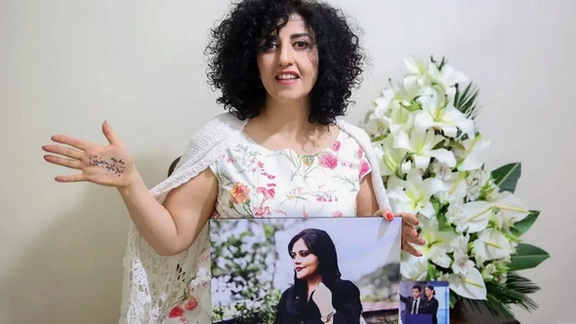
The United States on Thursday demanded Iran release Nobel Peace laureate Narges Mohammadi with no conditions, a day after her release for three weeks of medical leave.

The United States on Thursday demanded Iran release Nobel Peace laureate Narges Mohammadi with no conditions, a day after her release for three weeks of medical leave.
"Her deteriorating health is a direct result of the abuses that she's endured at the hands of the Iranian regime," State Department spokesman Vedant Patel said in a press briefing on Thursday.
"We call again, just as we've done before, for the immediate and unconditional release of Narges and other political prisoners," he added.
Mohammadi, 52, has spent much of the last two decades in and out of prison. She is currently serving a 13-year sentence in Tehran's Evin prison.
Earlier in October, Mohammadi’s family accused Iran's security and judicial authorities of repeatedly blocking her transfer to hospital for an angiography procedure.
Her situation "continues to be deeply troubling and unfortunate, because she should have never been incarcerated in the first place," Patel said.
Mohammadi was filmed being taken off an ambulance on Wednesday, holding a picture of Mahsa Amini, the 22-year-old Iranian woman whose death in custody sparked widespread protests in 2022.
"Hello freedom! Woman Life Freedom! Freedom is our right," she shouted while seated on a stretcher.
She was awarded the Nobel peace prize in 2023 for her three-decade campaign for women's rights in Iran.
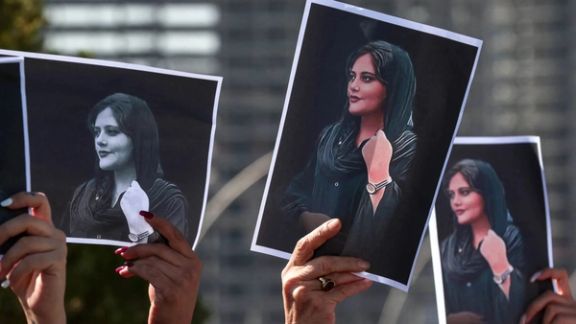
A new report from a US-based rights group drawing on hundreds of interviews over more than two years has documented Iran's systematic denial of accountability and legal redress for killings and other grave human rights abuses.
The Abdorrahman Boroumand Center for Human Rights (ABC) highlighted in its report released on Thursday the legal struggles of 16 victims' families who sought justice within the Islamic Republic's judicial system.
Based on over 300 interviews conducted between the fall of 2022 and November 2024, the report sheds light on their ongoing struggle.
The 2022 Woman, Life, Freedom protests were ignited by the death of Mahsa Amini in police custody and erupted in September 2022 across the country, resulting in at least 550 deaths, thousands of injuries and tens of thousands of arrests.
"Inside Iran, state obstructions prevent the families whose loves ones were killed in the Women, Life, Freedom uprising to seek justice, forcing them to live without closure," said Roya Boroumand, executive director and co-founder of Abdorrahman Boroumand Center.
Despite global outrage and two years of legal efforts, justice for those killed or injured during the crackdown remains out of reach, with many cases still unresolved and families facing continued harassment.
The report outlines several key findings, including the state's refusal to cooperate with independent investigations, the persistent harassment of victims' families, and the use of financial settlements and intimidation tactics to prevent legal action.
In the rare instances where legal action was taken, the report says trials were often deeply flawed, with the judiciary failing to identify perpetrators or prosecute them effectively.
Among the few convictions, the case of Mehran Samak stands out. Samak was shot dead by security forces in Bandar Anzali during a protest in November 2022.
Despite the initial dismissal of the police chief involved, the case has been a rare example of accountability, with a military court sentencing the officer to death for premeditated murder. However, appeals and ongoing delays mean the sentence has yet to be carried out.
Similarly, the case of Mohammad Jameh Bozorg, killed during a raid on his home by security forces, led to the conviction of a member of Iran's Islamic Revolutionary Guard Corps. The report noted that even in these rare successes, authorities have engaged in obstruction, attempting to coerce victims’ families into silence or accepting financial compensation in exchange for dropping charges.
The report also added that families of those killed in the protests, including Mahsa Amini, Mohammad Arian Khoshgovar, and Kian Pirfalak, continue to face pressure.
In many cases, investigations into these deaths have either been closed or suspended without proper judicial follow-up. The report reveals that numerous families, including the Khoshgovar family, were offered "blood money" in exchange for dropping their cases, with some facing threats of unspecficied repercussions.
In another instance, during the "Bloody Friday" massacre case in Zahedan, judicial officials urged victims' families to accept blood money as compensation. However, the families rejected the offer, demanding the harshest punishment for the perpetrators and those who ordered the violence.
Internationally, the United Nations’ Independent Fact-Finding Mission on the Islamic Republic of Iran (FFMI) has sought to address these violations, highlighting the use of state violence, including unlawful killings, torture and sexual violence.
However, the Iranian government has dismissed the FFMI's findings, saying the report lacks credibility and legal standing, labeling it a politically motivated attack.
“By establishing an Independent Fact-Finding Mission on Iran, the international community took an essential step towards achieving accountability. Now it must act decisively to ensure that the Mission's recommendations for justice and reparations are implemented outside Iran," Boroumand added.
"By doing so, it will send an unequivocal message to Iran: Impunity for repressing protesters will no longer be tolerated.”
The Boroumand Center report emphasized that despite the setbacks, families and supporters remain determined to win justice and urged global solidarity to back those who continue to fight for accountability and reparations.
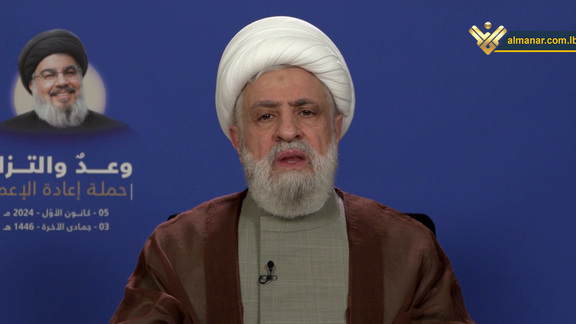
Iran has funded the bulk of aid distributed to Lebanese families affected by a 14-month war between Israel and the country's Tehran-backed militia Hezbollah, the group's leader said, even as an economic crisis festers inside Iran.
A total of $77 million has been earmarked for almost a quarter of a million families, Naeem Qassem said in a televised speech on Thursday, adding that most of the funds came from Iran.
Families whose primary homes have been destroyed would eventually be paid $8,000 as compensation and between $4,000 to $6,000 for temporary accommodation for a year, depending on where they live.
"We thank the Islamic Republic of Iran, led by Imam Khamenei, the state, the people, and the blessed Islamic Revolutionary Guard Corps for providing this generous support in the displacement process," Qassem said.
Hezbollah was formed by the IRGC in 1982 and joined a war between Israel and Hamas a day after the Palestinian group launched the deadliest attack on the Jewish state in its history on October 7 2023.
Israel escalated the conflict in September, killing Hezbollah's leader Hassan Nasrallah after maiming hundreds of mid- and senior-level commanders by planting explosives in their communications devices.
Hundreds of air strikes pounded Hezbollah's centers of popular support mostly within majority Shi'ite areas of south Beirut and the country's south. Lebanese authorities say more than 3,960 people were killed, many of them civilians.
Meanwhile in Iran, decades of US-led sanctions and economic mismanagement have sent costs soaring while the currency has plumbed multi-decade lows.
Labor and cost of living protests swept Iran earlier this month as nurses, emergency personnel, retirees, and public transportation drivers picketed, expressing dissatisfaction with government economic and social policies.
Iran’s president Masoud Pezeshkian warned of depleting foreign currency reserves in a televised address on Monday and earlier warned of an "economic abyss" due to shortages of water, electricity, and natural gas.
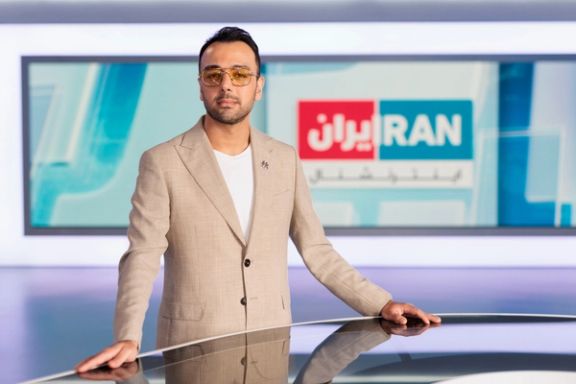
Romania arrested and charged two nationals over the stabbing of prominent Iran International presenter Pouria Zeraati in London earlier this year, Britain's Crown Prosecution Service said on Thursday, but authorities stopped short of linking Tehran to the attack.
"Following a review of the evidence provided by the Metropolitan Police Service’s Counter Terrorism Command, we have authorised charges against two Romanian nationals," the CPS said in a statement.
Iran has previously denied involvement in the case and any alleged attempts to attack dissidents abroad.
The men named as Nandito Badea, 19 and George Stana, 23 were arrested on Wednesday and have appeared in a Romanian court on charges of "wounding with intent to cause grievous bodily harm and wounding".
They now face extradition to the UK.
"The charges relate to an attack on a journalist in Wimbledon on the afternoon of Friday, 29 March 2024," the CPS added.
Zeraati was stabbed outside his home in Wimbledon, south London, on that date and sustained leg injuries.
"We won’t be commenting further on the investigation and would urge others not to speculate about the case, given criminal proceedings are now pending,” the London Metropolitan Police's acting counter terrorism commander Helen Flanagan said.
Iran International spokesperson Adam Baillie welcomed the developments.
"We’re happy for Pouria, who suffered the attack, and we’re delighted that the UK police investigation into the attack has progressed to this stage."
"It is reassuring for our journalists, as for others in organisations under similar threat," Baillie added. "We see in this the commitment of the UK to fight transnational repression in Britain.”
US and British law enforcement agencies have previously accused Tehran of recruiting criminals and gang members to attack dissidents abroad.
“We’re not dealing with the usual suspects,” Matt Jukes, head of counterterrorism policing in the UK, was quoted as saying in a Washington Post article in September.
“What we’ve got is a hostile state actor that sees the battlefield as being without borders, and individuals in London are as legitimate as targets as if they were in Iran.”
US federal indictments last year accused three individuals allegedly linked to an Eastern European mafia group of plotting to assassinate Iranian-American journalist and activist Masih Alinejad at the request of Iranian authorities.
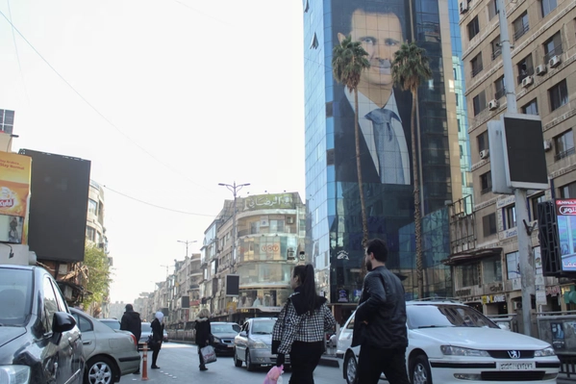
Syrian army forces quit Hama as rebels entered the northern city, dealing another heavy blow to the embattled government which has been propped with aid from Iran and its regional allies for over a decade.
Syrian forces were withdrawn "to preserve the lives of civilians and to prevent urban combat", the army said in a statement, as Al Jazeera broadcast footage of opposition fighters in the city center.
The shock advance of hardline Islamist-led rebels wrested the second largest city Aleppo from the forces of President Bashar al-Assad last week, endangering the Islamic Republic's oldest Arab ally in region.
A rebellion which has festered for over a decade since Arab Spring protests in 2011 had mostly been quelled after heavy backing from Iranian paramilitary forces and fighters from the Lebanon's Tehran-backed Hezbollah militia.
Iran has said it is ready to support Assad and has returned to the country a top Islamic Revolutionary Guard Corps commander who had helped Damascus wrest Aleppo back from the rebels in 2016.
"We firmly stand by Syria and will certainly intervene in the fight against terrorists”, Abbas Golroo, an Iranian lawmaker who recently visited Damascus said on Thursday.
"The Islamic Republic of Iran stood by Syria for ten years and now too has responded to the Syrian government’s request to intervene," he added. "Our intervention is aimed at preventing the presence of terrorists and combating them.”
Iraqi militias long armed and funded by Iran have been entering the country since the rebel offensive began, Reuters reported quoting Syrian military sources.
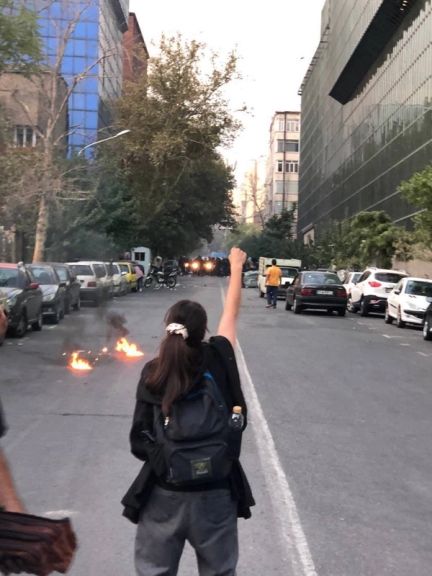
Several dissident figures linked to Iran's Green Movement from fifteen years ago have called on the Iranian elite to support women's civil disobedience against the hijab mandate rather than merely criticizing the new hijab law.
One such call to civil disobedience came from Abdollah Naseri this week, a former managing director of Iran's official news agency (IRNA), who called the hijab law “pure evil”.
“It is a good time for the revolutionary men and women of ‘Woman, Life, Freedom’ to take over the streets again and without violence shout the right to freedom of how to dress, a gift from God to his creatures,” Naseri said in a note published by the banned Kalemeh website Tuesday.
Like the prominent jailed dissident Mostafa Tajzadeh, Naseri is a member of the banned Mujahedin of the Islamic Revolution, a small but once very influential Reformist political organization withing the Islamic Republic's political elite.
Naseri has been one of several activists and political figures to be vocally against Supreme Leader Ali Khamenei’s leadership and policies including his insistence on the necessity of hijab. The hijab laws have continued to worsen in the wake of the uprising in 2022, sparked by the death in morality police custody of Mahsa Amini, arrested for not wearing her head covering properly.
He said the current situation as laws continue to become ever more draconian, is “extremely unstable”.
Vasmaghi, a female Islamic scholar and politician, has argued that the Islamic Sharia does not require women to cover their hair and alleges that the Islamic Republic has used it to enhance its discrimination against women.
After years of wearing the hijab by choice, Vasmaghi posted a video of herself in October 2023 that showed her unveiling in protest.
In a note published on Telegram about the new hijab law, Isa Saharkhiz, another dissident and former politician, has warned that the new hijab law has the potential to trigger a national civil disobedience movement and an “unpredictable domino [of events]”.
One must emphasize that an opportunity has presented itself now to test the ruling establishment’s reaction to a peaceful but effective “national movement” against the new law, he wrote.
Saharkhiz also raised the question of whether given his declaration of total obedience to Khamenei, President Masoud Pezeshkian will eventually yield and carry out Khamenei’s wishes or resign if he could not honor his promise to stop hijab enforcement.
Some dissident politicians appear very optimistic about what civil disobedience against the hijab can achieve.
“Iranian women’s resistance will defeat the Hijab and Chastity Law,” Ardeshir Amir-Arjomand, the spokesman of the Coordinating Council of the Iranian Green Movement and a former senior adviser to Mousavi, tweeted Sunday.
Amir-Arjomand, who lives in exile, argued in his post that the solution to the problem caused by the new hijab law is “resistance and civil disobedience” rather than appealing to the Supreme Leader to abolish it by using his extraordinary powers as some politicians and the media in Iran have suggested in the past few days.
The UN has called Iran's hijab enforcement a form of "gender apartheid" and rights groups have called it a "draconian campaign" to force women to veil and a "war on women".